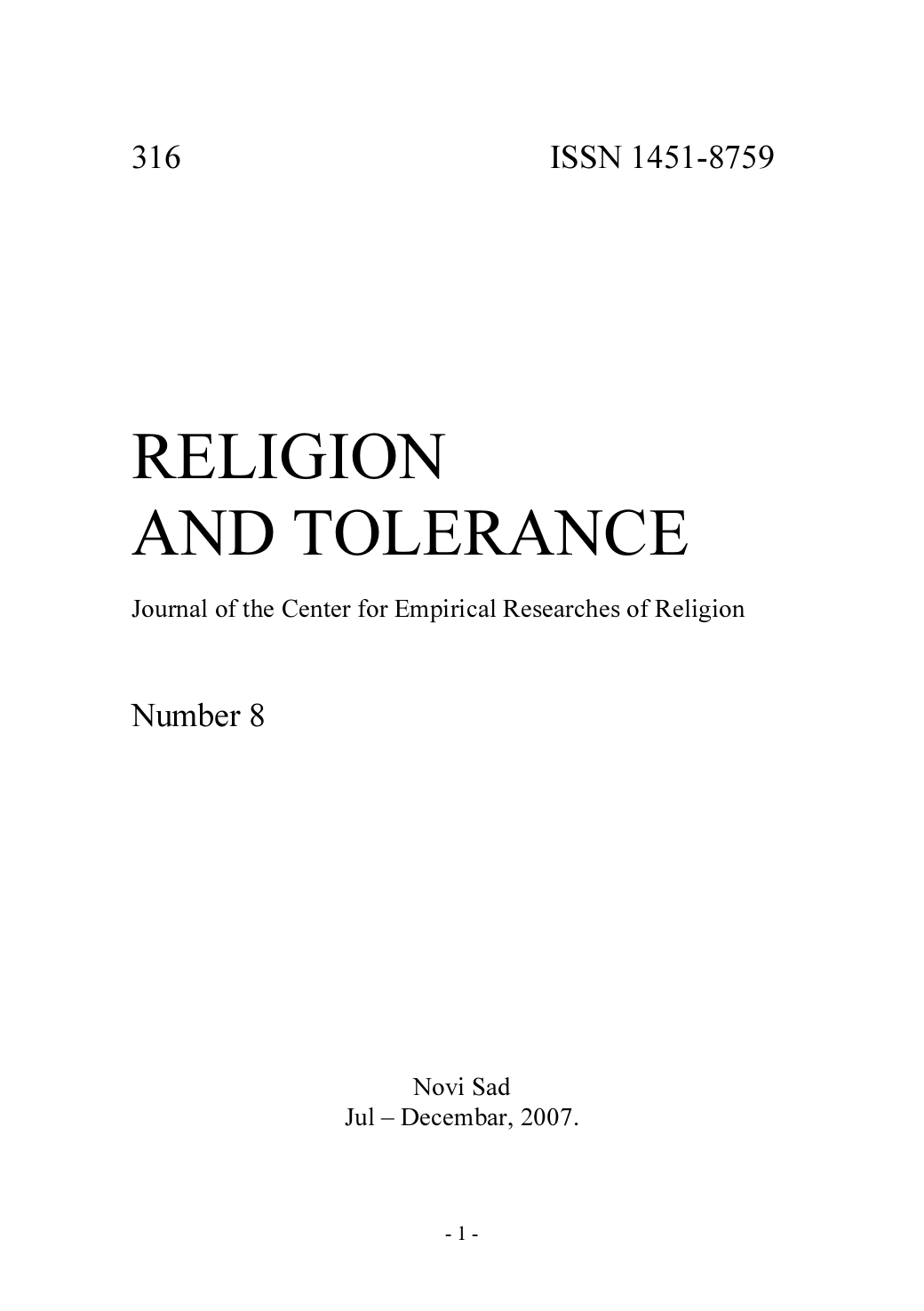HUMAN RIGHTS, CONCORD AMONG RELIGIONS, AND WORLD PEACE
HUMAN RIGHTS, CONCORD AMONG RELIGIONS, AND WORLD PEACE
Author(s): Sabina PstrockiSubject(s): Theology and Religion
Published by: Centar za empirijska istraživanja religije (CEIR)
Keywords: Human rights; religion; religious tolerance; Culture of peace and human rights; sociology of language; politicizing and depoliticizing the message; understanding terrorism and American war on terror;
Summary/Abstract: This article gives analysis starting from the fundamental concepts of human rights in world’s four main religions, and confirms that every religion had positive attitudes towards respect for human rights and tried to develop consciousness of their existence in minds of its adherents and believers. However in practice, and especially in modern and contemporary society, the religious discourse is often misused and normalisation is difficult after long episodes of spreading hate and religious intolerance. There are always political events that contribute to change which can be very abrupt and there are religious roots and motives in every conflict. Human being is too complex, and whatever action they undertake, no one can understand it completely. Besides theorising, it is difficult to grasp consciousness of an individual, or his religious adherences and preferences. The world has become a complex place, where ideology, theory, marketing and civil society are all mixed. There are all sorts of misinterpretation of religious texts by religious leaders, or by individuals themselves who choose an unacceptable ethical choice or behaviour. It is however important for the ‘Culture of peace and human rights’ to exist in the world where diversity has become so natural that no one cares too much how to deal with all mingles and intermixtures. It is essential to understand where the concept of human rights stems from, and to find what is similar in all religions. Contemporary human has to be aware that there is the political sociology of language and semiotic categories which dictate how understanding happens. Criticism often operates as an agent of de-mystification. Some critics claim that text is not the issue source of meaning, and the issue is politicizing and depoliticizing the message, by author, theorist or religious leader. 'After September 11th, the international community came in a sort of endless state of alert, in war against terrorism, whose ramifications are equally unreachable as the terrorism itself....’Before September 11th most people who wrote about terrorism thought that the danger from it was minimal compared to dangers we encounter in our everyday lives. The well known argument is that psychological effect of terrorism is not comparable to physical, and terrorism started to signify the mass destruction at the beginning of 21st century. Understanding terrorism in the way the American propaganda often does, means simplifying a phenomenon, which has become a feature characteristic of our times. In most parts of the world different religions more or less peacefully co-exist, and there are some crucial problems of this co-existence. The necessity of finding solutions to these problems rises since diversity became common feature of contemporary society and humanity.
Journal: Religija i tolerancija
- Issue Year: 2007
- Issue No: 8
- Page Range: 49-66
- Page Count: 18
- Language: English

